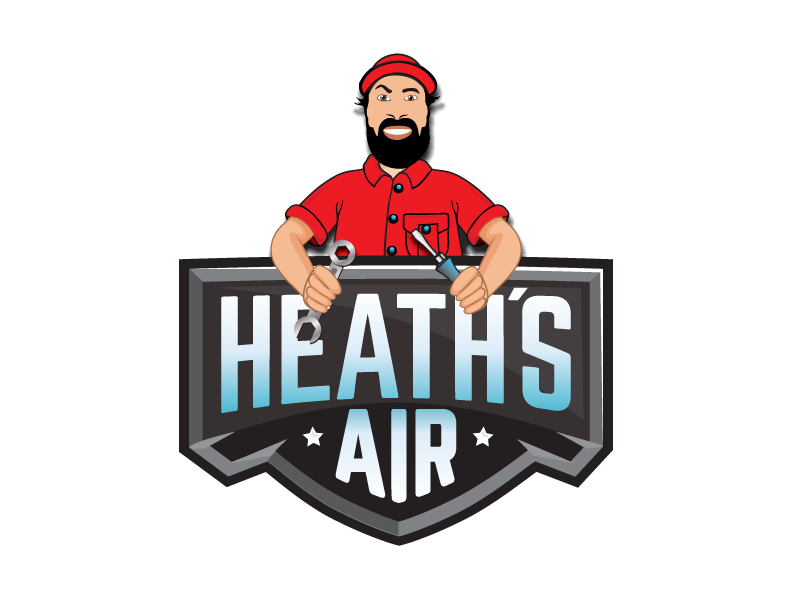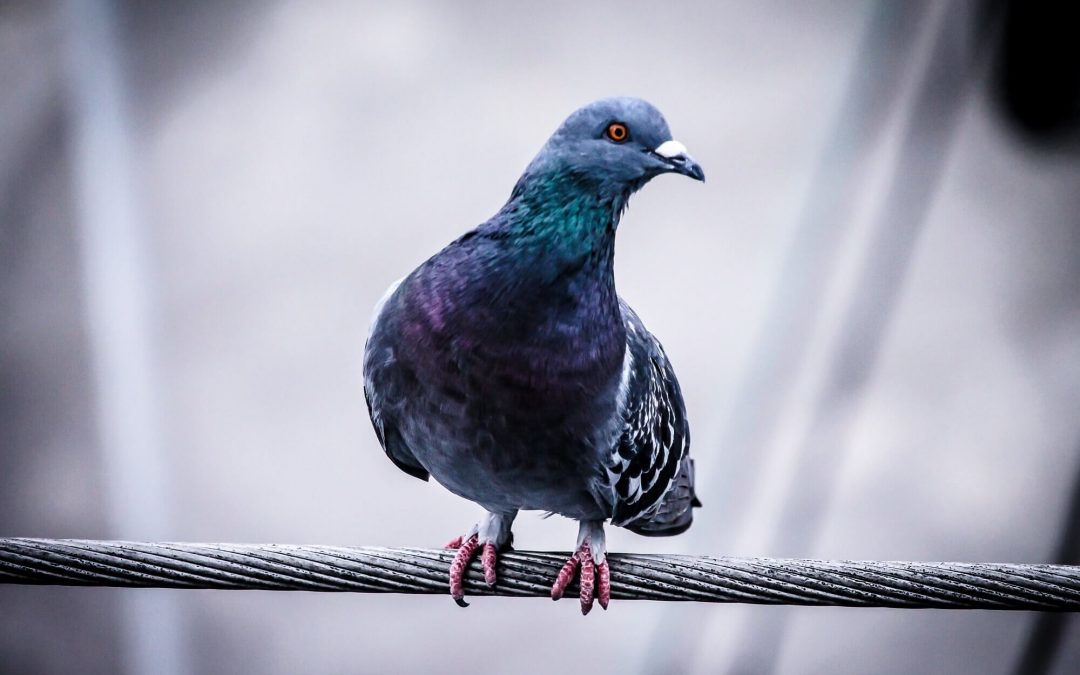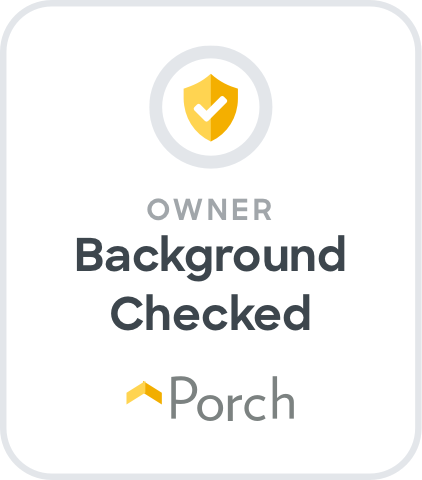Different types of birds, such as pigeons and gulls, like to roost on rooftops. They can be unsightly but they can also cause a lot of damage.
Often, HVAC systems on the roofs of commercial buildings are the highest point and ideal for perching. Dry, warm spaces under or within the units prove to be attractive nesting locations for birds.
This can cause serious problems with your heating and cooling system. Bird droppings can corrode components, not to mention spread diseases into your air space. Nests could trigger electrical fires or block ventilation.
Fortunately, there are several methods available to provide pigeon and bird-proofing for commercial building HVAC systems. The information below lays out ideas for HVAC bird control and explains why it is imperative to protecting your business. Keep reading to find out which methods may be most effective for you, or call Heath to take a look and help decide.
Bird Threats
The damage birds can do to HVAC systems can be extensive, and it can happen without you noticing it. Flocking behavior can exacerbate the situation. Birds seek out others that have identified sources of food, water, or shelter.
Here are major reasons you should consider bird control for rooftop HVAC units.
Bird Droppings
Bird droppings are highly acidic. Besides creating a mess, they can cause HVAC components to rust and corrode.
They also could spur the growth of algae and spread bacteria or fungi that can cause diseases. These include E. coli, salmonella, and psittacosis, a disease transmitted to humans exclusively through birds. When cleaning up bird droppings, you should always wear protective gloves and facemasks.
Bird Nests
Birds make their nests out of flammable materials like grass and twigs. In or near certain HVAC components, these materials can become a serious fire hazard. Birds also may pick away insulation from HVAC systems to make their nests, leaving pipes exposed.
Nests also can accumulate moisture. This can damage your HVAC components or impact ventilation systems. Debris can choke air filters and create a blockage of airflow. It could also clog evaporator coils.
Threat to Employees
Like most animals, if threatened, birds will defend their territory. This is especially true of birds that are nesting. Employees trying to remove nests are in danger of being attacked by protective birds.
The Hassle of Cleanup
Besides removing and deterring birds from becoming regular guests on your roof, you will need to clean up whatever damage they have done. This is best left to a professional.
Companies that specialize in installing bird-deterrent equipment can use the information from cleanup to their advantage. It can help them understand the bird’s behavior so they can better prevent it in the future.
Note that in many circumstances it is illegal to move an active nest. There are exceptions, like the nest being in a dangerous location. A trained HVAC technician who specializes in commercial systems will know what is an appropriate course of action in these circumstances.
Pigeon and Bird-Proofing for Commercial Building HVAC Systems
The best strategy is to prevent the birds from nesting in the first place. Here are some of the most effective methods of bird control for rooftop HVAC units.
Note that, whatever deterrent mechanism you use, there is a chance that birds will get used to them or find a way to get around them. That is why alternating methods on occasion can keep the birds on their toes.
Preventative Maintenance
One simple thing you can do to discourage birds from perching on or in your HVAC system is to eliminate enticing areas. This includes filling holes or spaces that are conducive to nesting.
Also, if your roof tends to collect small ponds of water, this attracts birds. It is an ideal place for them to bathe and drink. Consider leveling off your roof or otherwise eliminating standing water.
Predator Decoys
Birds will avoid areas where they spot predators. Decoys like owls, hawks, or falcons that prey on other birds can be an effective deterrent.
You don’t have to do a lot of research to find out if a predator is native to your area. Birds’ reaction to a perceived threat is instinctual.
Bird Netting
Bird netting is an effective method of pigeon and bird-proofing for commercial building HVAC systems. It creates a barrier that prevents birds from accessing certain areas.
They are popular for overhangs or other semi-open structures under which birds like to nest. The netting protects the rafters from any intruders. Another advantage is that it is not noticeable, so it does not create an eyesore.
One big disadvantage of netting is the birds can become trapped in it. This potential can be minimized with proper installation, but it also creates natural limits for areas where you can install it.
Bird Spikes
Bird spikes are long rods that you attach to structures where birds perch, including rooftops, ledges, or signage. You can install them on or around HVAC units.
Bird spikes do not hurt the animals but work by reducing the area where they can land or move around. One disadvantage is that, if you have a large roof, it can be expensive to cover it with spikes.
Bird Wiring
Bird wiring systems suspend metal tension wire between two poles. The wire is on springs, which makes it unstable for birds to land on.
These are often placed at varying heights to make it difficult or even impossible for birds to land. You can buy different configurations of fixings pins to accommodate any surface or layout.
One big advantage to these is that they are cost-effective and last a long time. Another plus is that they are a more discrete HVAC bird deterrent than spikes. Also, they are almost undetectable, so they will not impact the aesthetics of your building.
There are a few minor disadvantages to wiring. You cannot use them on surfaces with tiny areas, like the top of flagpoles. Also, smaller birds may be able to perch on them.
Find HVAC Bird Control for Commercial Properties
Now that you have an idea of the different methods available for pigeon and bird-proofing for commercial building HVAC systems, you can decide which method is right for you. You will have the peace of mind that your building is free of birds and what they leave behind and that your HVAC system is protected.
At Heath’s Air, we provide residential and commercial HVAC services. We do installation and repair and can recommend solutions on bird control for commercial cooling systems. Reach out to us today to see how we can help.




